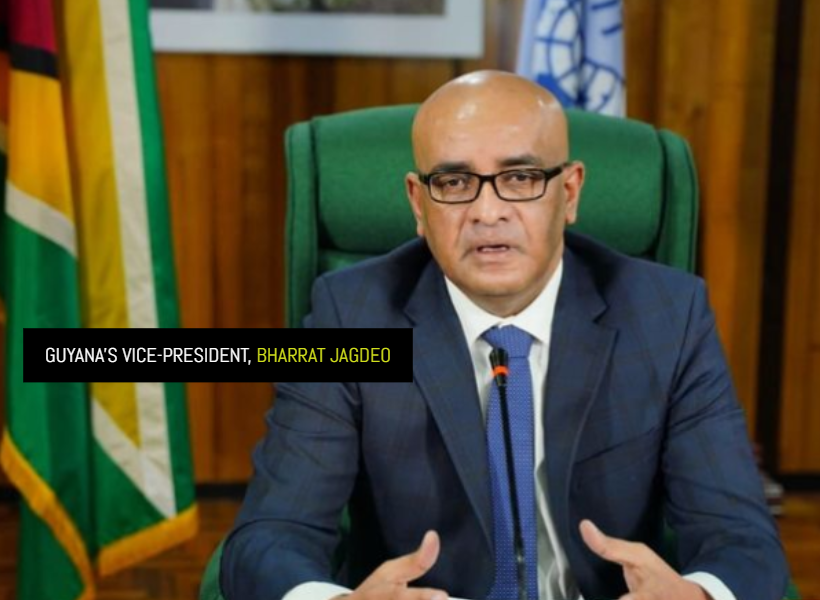Vice President, Dr. Bharrat Jagdeo has defended the government’s imminent proposal to raise the debt ceiling for a third time as well as revise the withdrawal rules for the Natural Resource Fund (NRF) to access more oil revenues. He explained that, on one hand, the ceiling needs to be increased to facilitate investments into critical projects that underpin economic diversification. On the other hand, he said increasing transfers from the NRF reduces reliance on loans for other developmental needs.
At a press conference on Thursday, the vice president said the government’s plan to revise the NRF rules forms part of a broader strategy to sustainably manage the country’s debts. The Vice President also stressed that the increase in the debt ceiling is not for frivolous or wild spending but to accommodate transformative projects like the gas-to-energy initiative, soon to be financed through a US$660M loan from the US Exim Bank.
He noted, “As I pointed out, that we would see this intense period of build out of a lot of our infrastructure that are urgently needed to support continued growth in the economy but once they are completed, you will see a steep fallout in the budget.
“The budget would be reduced significantly in the in the outer years because once you finish building the 12 hospitals and the bridges and the power plant, then you don’t need to expand anymore.”
Jagdeo added that a review of the debt ceiling would be considered once these projects are complete.
The Vice President also reassured that the soon to be raised debt ceiling does not imply maximum borrowing and will not impact Guyana’s low debt-to-GDP ratio.
Underlining the government’s conservative approach in setting the initial NRF withdrawal rules, he shared that it was the intention of policymakers to wait until the NRF reached a US$3B threshold before accessing more funds.
With the NRF closing 2023 with US$1.9B and expecting US$2.4B in oil revenues for 2024, the government projects to transfer at least US$1B based on current rules. More funds would be allocated for budget support once the new rules are in place.













